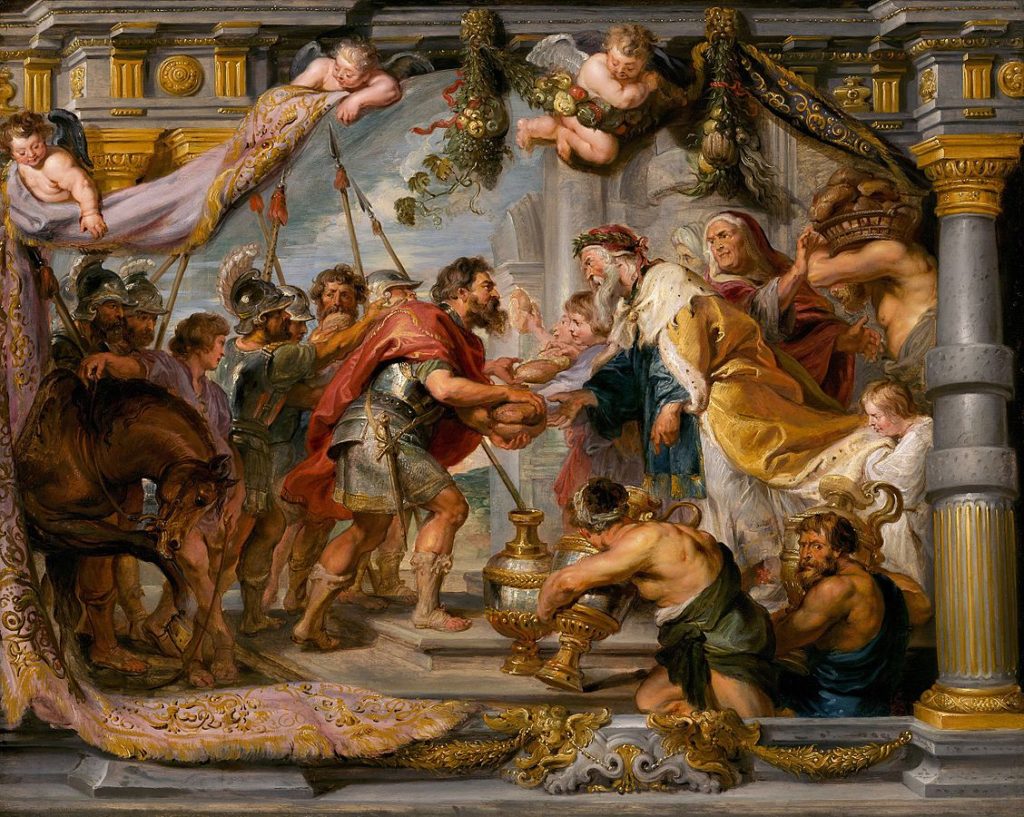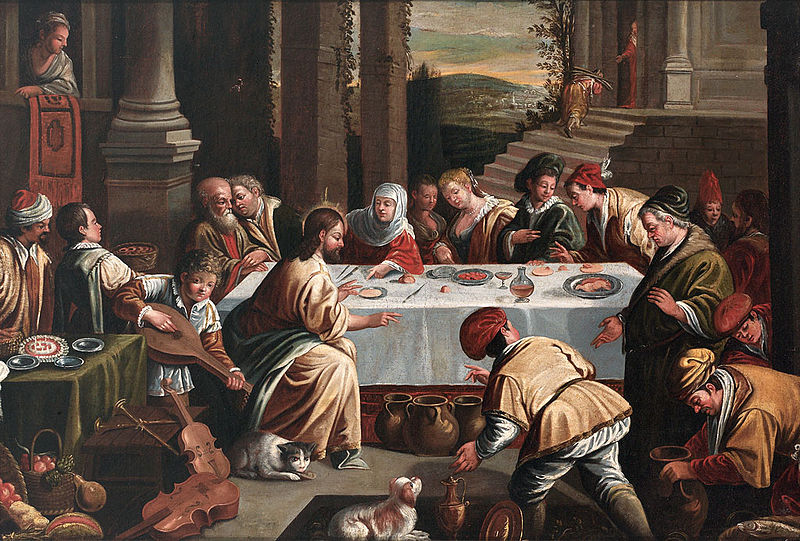The story of the Gerasene demoniac appears to be something quite out of the ordinary, even compared with some of the other miracles in the Gospels. But actually we might find we have a very significant thing in common with the mad naked man of the tombs.

We find ourselves drawn to Jesus but at the same time can feel fear and antipathy about what he might do to us. When we try to follow him we quickly find him challenging the dark places in our souls, and we resist, even though we know we’d be better off if we let him in to sort them out.
We find ourselves drawn to Jesus but at the same time can feel fear and antipathy about what he might do to us.
But this story isn’t something we can just identify with, we can also learn a lot from it about something else. The illness called Depression. When I was growing up, I didn’t realise I was short-sighted. When people said: “Oh look! The Man in the Moon!” I’d say “Ooh yes!”, but I was lying. I couldn’t see a thing. I nearly failed my driving test because I got a C muddled for a G on the number plate test. Once I’d passed I realised I might need glasses because I had to slow down to read the road signs.
Finally I had my eyes tested, was issued with a pair of NHS specs, put them on and had the biggest “A-Ha!” moment of my life that far. “Wow! Mum look!” I said. “There are leaves on the trees!” and when night fell I said this truthfully for the first time “There’s a man in the moon!” My poor Mum felt a bit guilty.
I’m a priest, but I’m also a medical doctor and used to work as a GP. About 15 years ago, at a seminar by Dr Grant Mullen, a Christian Psychiatrist, I had a similar “A-Ha!” moment about depression. Not just because I’d treated it in others, but because I’d had it myself. The biggest “A-Ha!” moment was when he said that the average time between onset and diagnosis is about 25 years.
Some see depression as sign of weakness and so keep quiet about how they feel and don’t get help.
There are two reasons for this. First, just like short-sightedness; depression usually comes on gradually. People get used to being low, and think that’s what life’s really like. Secondly there’s a great stigma about being mentally ill. Some see it as sign of weakness and so keep quiet about how they feel and don’t get help.
Actually Christians are even more likely to keep quiet than people without faith. Christians have the usual fears of stigmatisation shared by anyone, but can also feel more guilty for being depressed because, after all, their faith is supposed to give them meaning and hope.
So what does Gerasene demoniac have to tell us about this horrible illness? He displays the symptoms of what would now be called a much more severe form of mental illness. But there are many parallels between his symptoms and the experience of those with depression.
- He was living among the tombs.
There are two points to make here. First may be that by living among the dead he was rather hoping to join them. Suicidal thoughts are a feature of depression: and they’re abnormal. Secondly, by being in the tombs he was occupying a place where no-one visited, just as people with depression will try to avoid people where possible.
- No-one could bind him.
When depression descends it can feel like nothing anyone can say or do will make a difference.
- He cried out and was active both during the day and at night.
Common features of depression are tearfulness and sleep disturbance.
- He cut himself with stones.
Self-harm can be a feature of some mental illness, but more common is self-neglect. Depressed people actively avoid things that help, including company and exercise, and they end up doing things that don’t: like drinking caffeine and alcohol.
So how do we understand depression from a Christian perspective? Well, the model I learnt from Dr Mullen is that we have three parts: Body, Soul & Spirit, and problems in any one of these areas can contribute to depression.
We have three parts: Body, Soul & Spirit, and problems in any one of these areas can contribute to depression.
Our Body is our physical and chemical make-up. Just as some people lack insulin which results in diabetes, so others lack sufficient levels of a chemical called Serotonin. Serotonin is used to transmit messages between nerves; and research shows that in people with depression, Serotonin levels are lower than normal. Modern antidepressants block the process in the body which breaks down Serotonin, which means that the Serotonin levels, and thus mood, can return to normal. Exercise is also good to combat depression because of its effect on the body.
The Soul is not a physical entity but may relate in part to genetics; its best described as the personality. It’s that part of you that relates to others horizontally, the place where emotions are seated, the part that can be damaged by trauma and abuse. But it’s also the part that can be helped by counselling and therapy.
And finally there’s the Spirit. Spirituality is a bit of a slippery concept. But I believe the Spirit can be adversely affected by involvement in things like the occult, and benefited by a close relationship with God.
Each of these three parts is interdependent; so improving one area will also improve another. For example, I discovered that exercise definitely improves your prayer life. The problem with the Spirit side of things is that because depression causes poor concentration, reclusiveness and low energy it’s particularly good at sabotaging the very spiritual disciplines such as prayer, bible study and worship that help us develop a relationship with God.
In Jesus we have a God who comes to meet us where we are; when all is well, but also when things are not so good.
But there’s good news. It’s not all down to us. In Jesus we have a God who comes to meet us where we are; and that’s not just his modus operandi when all is well, but also when things are not so good. And so while it’s good to seek medical help if you ever get stuck, it’s always worth reaching out to the one who is always reaching out to you. The one who comes to find us when we’re hiding away in the tombs and who is never ashamed of us or fazed by us and who wants to restore us to our true selves.
To him be all glory, from ages to ages.


